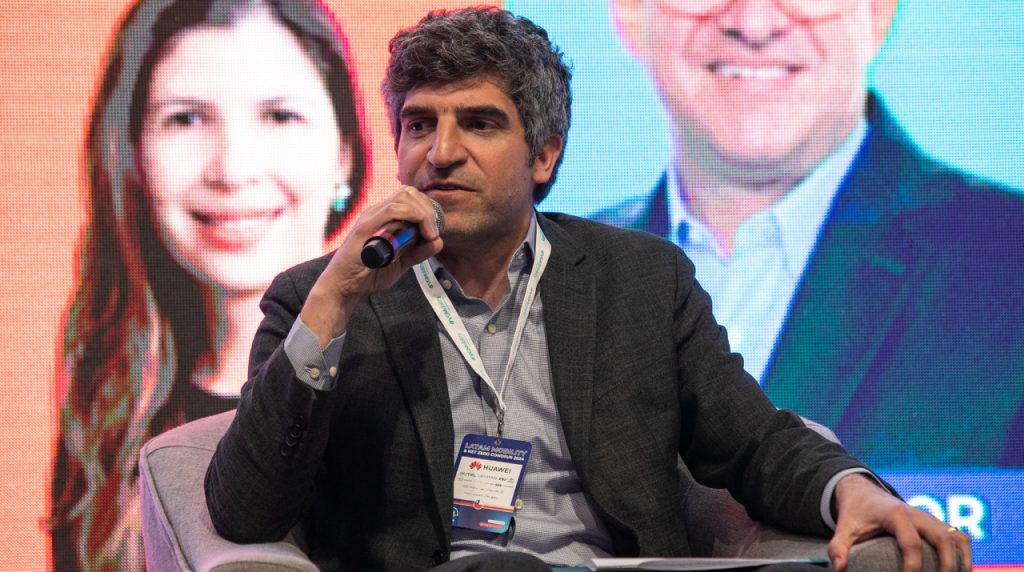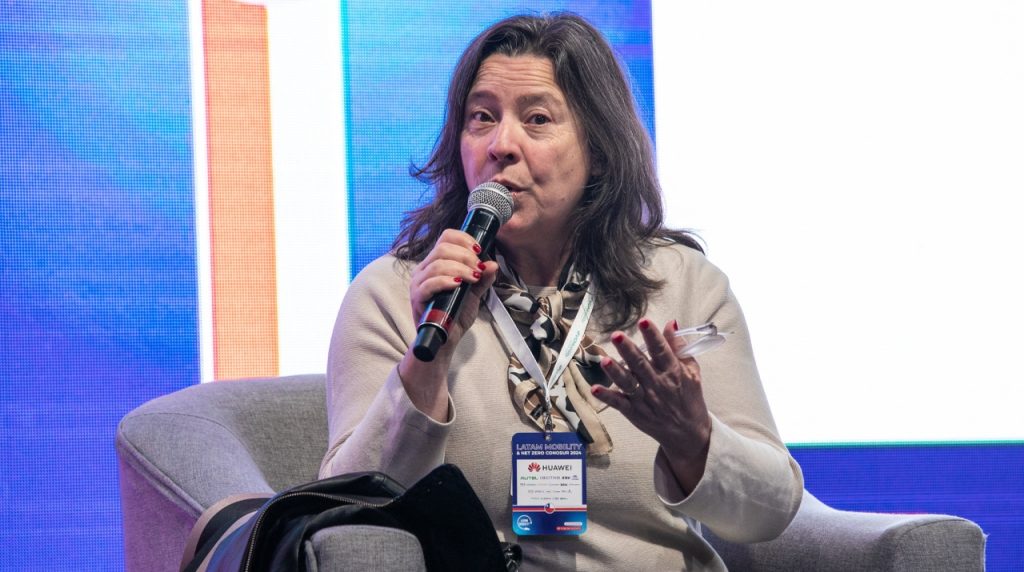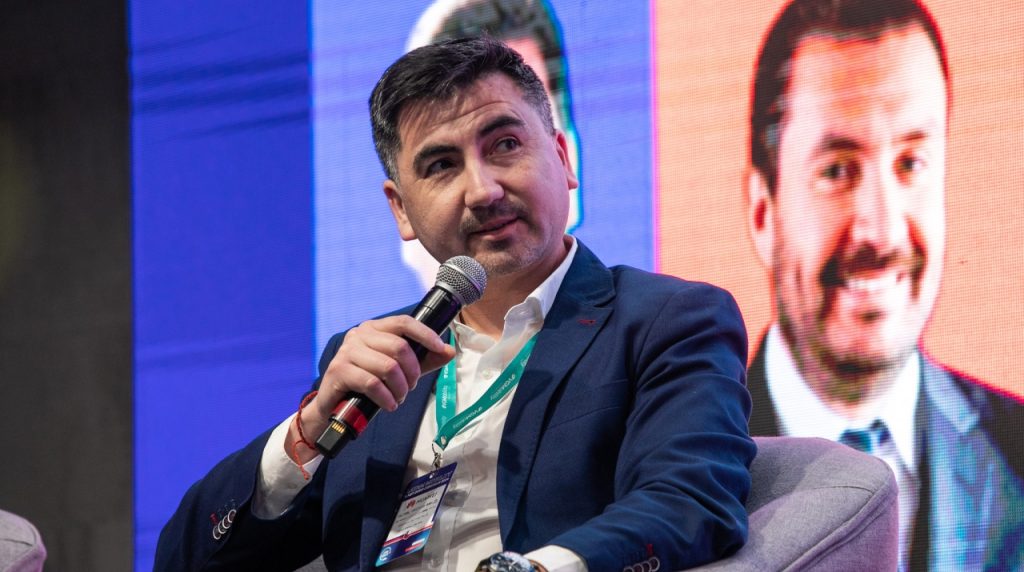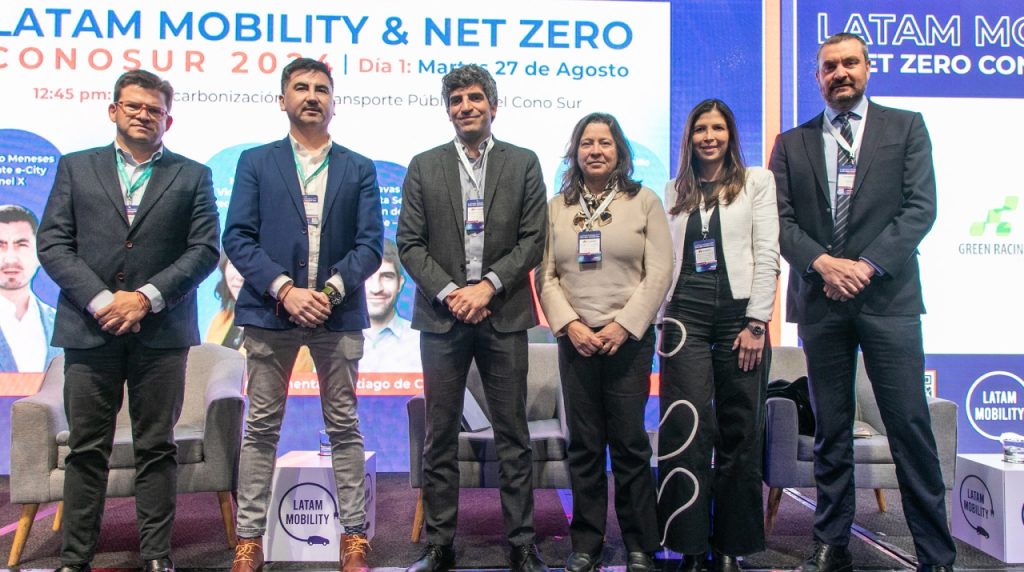The decarbonization of heavy transport in the Southern Cone was a topic discussed during the Latam Mobility & Net Zero: Southern Cone 2024, a conversation moderated by Andrés Jaramillo, CEO of VG Mobility.
Jaramillo served as a guide for a rich discussion with Orlando Meneses, Head of e-City Chile at Enel X, Hernán Berríos, CEO of Transdev Chile, Marcela Munizaga, Vice President of the Board at Metro S.A., Cristian Navas Duk, Senior Specialist in the Transport Division at the BID, and Sofía Zarama, Consultant at Zarama Valenzuela Consultores.
Advances in Electrification and Decarbonization Models
Electrification of heavy transport has been a regional topic over the past decade, with initial steps taken in Colombia, Brazil, and Chile around 2010, when the first tests with electric buses were conducted.
“Undoubtedly, the electrification of public transportation brings a benefit in terms of mitigating climate change and reducing CO2, and unlike the implementation of other technologies, it allows for zero-emission buses. That is a very important benefit to keep in mind, which sets it apart from other technological alternatives,” argued Zarama.
Despite initial challenges and the need for appropriate infrastructure, these efforts have evolved significantly. Today, costs have decreased notably, and public transport tenders in Santiago have demonstrated the competitiveness of electric vehicles over traditional diesel ones.
“In Santiago, we have achieved a competitive solution, and this was demonstrated in the last tenders, where operators were offered the choice between diesel and electric: electric won by a large margin, and today they can only apply under this modality,” said Meneses.
Thus, it is important to consider the “Total Cost of Ownership” (TCO), which includes the initial cost, operational costs, and long-term maintenance, aiming for more economical and sustainable solutions in the region.
Furthermore, collaboration between transport operators and technology providers has been crucial in overcoming practical challenges such as bus range and charging infrastructure.

“In general, we see that electrification is an important issue, but public transportation, from the perspective of carbon neutrality, also plays a very relevant role, not only through electrification but as a more efficient means of transporting people. In that sense, the challenge is to see how electrification can perhaps enhance those public transportation services and make them more efficient and economically sustainable,” stated Navas Duk.
Challenges and Opportunities
Although the electrification of transport has shown positive results in several countries in the region, there is a significant challenge in preparing companies to face these changes.
In countries where infrastructure and business capacity are limited, alternative solutions such as biofuels and synthetic fuels might offer viable options.
However, the organizations participating in Latam Mobility continue to promote electrification due to its positive impact on the efficiency and sustainability of public transport.
On the other hand, there was a discussion about the experience of Metro in Santiago, which has operated with electric energy for 50 years. The metro has advanced in implementing clean energy and integrating autonomous vehicles.

“The metro is a mode of electromobility; it runs on electric power. We’ve been doing electromobility for 50 years, and on the new lines, we also have autonomous vehicles. For the past year or two, 100% of our energy has been certified as clean energy. On the other hand, we are continuing to expand the network with very challenging projects, such as the construction of Line 7, while working on the design of Line 8,” emphasized Munizaga.
In this context, it is crucial to view public transport as an integrated global system rather than just individual components, to maximize the benefits of decarbonization.
Innovations and Future
One of the areas mentioned during the panel was the need to innovate in charging infrastructure, such as solutions like night charging and shared charging yards to optimize infrastructure use.

Additionally, public transport faces the challenge of increasing its market share compared to less sustainable transport options. Carbon taxes and congestion pricing measures might be necessary to encourage the use of public transport and reduce emissions.
Finally, the decarbonization of heavy transport in the Southern Cone is a complex process that requires collaboration among governments, companies, and citizens. In this regard, Latam Mobility plays a fundamental role by bringing together all possible actors to work on sustainability in the short, medium, and long term.
“We operate in several parts of the world and test different technologies like hydrogen and biofuel. In one of the studies we conducted in France, it was revealed that electromobility itself generates the greatest carbon footprint savings, reducing it by 44% compared to hydrogen, 32% compared to biofuels, and 84% compared to diesel,” said Berríos.
The lessons learned and experiences shared among the participants provide a valuable roadmap for addressing future challenges and advancing towards cleaner and more efficient transport in the region.




